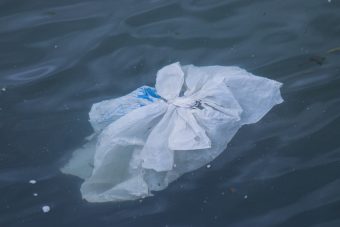
An exorbitant amount of plastic waste continues to plague our oceans, threatening marine life and the people who depend on these waters for their livelihoods. An estimated 11 million metric tons of plastic enters our oceans each year—the equivalent of at least a dump truck per minute.
Despite the dire scope of this crisis, the growing momentum to address it is promising. Over 757.000 people have signed WWF‘s fight against plastic pollution. More and more companies are making large-scale commitments to eliminate unnecessary plastic and make their plastic reusable, recyclable or compostable. And 76 countries launched a declaration calling for a United Nations globally binding treaty to address plastic pollution.
And while we need everyone to be a part of the plastic waste solution, some actions weigh more than others. Right now, all eyes are on the United States, where the actions we take in the year ahead can have a profound influence on the course of the plastic waste crisis.
Americans account for only 5 percent of the world’s population yet create half of the globe’s solid waste. As one of the top producers and users of plastic worldwide, we recycle only a mere 9 percent of it. That means over 90 percent of the plastic we use—even if it is recyclable—ends up incinerated, landfilled, or polluting nature.
More:
With this challenge comes an immense opportunity to fix our broken systems so that the plastic we make is sustainable and not going to waste. Unlocking this potential will take political leadership, which is why we are calling for the US to push policy solutions forward in three concrete areas:
1. Calling for environmental justice
In the US, we need policies that prioritize community protections and lift the voices of those afflicted by the environmental impact of plastic production. We must also push to ensure that, no matter where you live, the environment surrounding you is free from pollution and mismanaged waste.
You can help. Tell the Biden administration to support the inclusion of principles for environmental justice executive actions.
2. Strengthening recycling by putting the responsibility on producers

A big fixture in the broken plastic system today is recycling—or lack thereof.
To ensure that what goes into our blue bins actually ends up recycled and used again, we need to disrupt business-as-usual and shift to a system in which the producers of plastic help pay for it.
And all Americans must have equal and straightforward access to the recycling system in a way that will work for every community. This change is a critical lever for driving the circular economies—those aimed at eliminating waste and pollution and keeping existing products and materials in use—we need to help turn off the tap of pollution leaking into nature.
We can make this possible through a national public policy approach called Extended Producer Responsibility (EPR). EPR aims to eliminate plastic waste by putting the burden of the proper disposal of products on the producers.
We need public policy to bring EPR to life. You can support this effort by signing on to tell Congress to enact the Break Free From Plastic Act.
3. Supporting international leadership
While we can act locally to address plastic pollution, the crisis transcends borders. Every single country must be part of the solution. We need a united global response to the plastic pollution crisis, with the world’s governments taking accountability. The US is no exception and should play an active role in the development and signing of a UN treaty on plastic pollution.
Help us get to a million signatures for a binding global international treaty HERE.
Source: WWF



